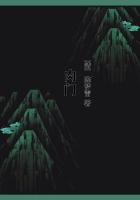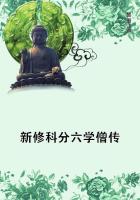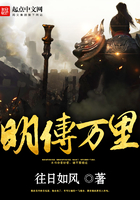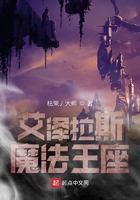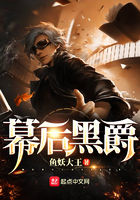On the contrary, he stood out obstinately as the leading champion of silver in the East. The reformers, represented by the Evening Post and Godkin, whose personal interests lay with the gold standard, at once assumed that Senator Cameron had a personal interest in silver, and denounced his corruption as hotly as though he had been convicted of taking a bribe.
More than silver and gold, the moral standard interested Adams. His own interests were with gold, but he supported silver; the Evening Post's and Godkin's interests were with gold, and they frankly said so, yet they avowedly pursued their interests even into politics; Cameron's interests had always been with the corporations, yet he supported silver. Thus morality required that Adams should be condemned for going against his interests; that Godkin was virtuous in following his interests; and that Cameron was a scoundrel whatever he did.
Granting that one of the three was a moral idiot, which was it: -- Adams or Godkin or Cameron? Until a Council or a Pope or a Congress or the newspapers or a popular election has decided a question of doubtful morality, individuals are apt to err, especially when putting money into their own pockets; but in democracies, the majority alone gives law. To any one who knew the relative popularity of Cameron and Godkin, the idea of a popular vote between them seemed excessively humorous; yet the popular vote in the end did decide against Cameron, for Godkin.
The Boston moralist and reformer went on, as always, like Dr. Johnson, impatiently stamping his foot and following his interests, or his antipathies; but the true American, slow to grasp new and complicated ideas, groped in the dark to discover where his greater interest lay. As usual, the banks taught him. In the course of fifty years the banks taught one many wise lessons for which an insect had to be grateful whether it liked them or not; but of all the lessons Adams learned from them, none compared in dramatic effect with that of July 22, 1893, when, after talking silver all the morning with Senator Cameron on the top of their travelling-carriage crossing the Furka Pass, they reached Lucerne in the afternoon, where Adams found letters from his brothers requesting his immediate return to Boston because the community was bankrupt and he was probably a beggar.
If he wanted education, he knew no quicker mode of learning a lesson than that of being struck on the head by it; and yet he was himself surprised at his own slowness to understand what had struck him. For several years a sufferer from insomnia, his first thought was of beggary of nerves, and he made ready to face a sleepless night, but although his mind tried to wrestle with the problem how any man could be ruined who had, months before, paid off every dollar of debt he knew himself to owe, he gave up that insoluble riddle in order to fall back on the larger principle that beggary could be no more for him than it was for others who were more valuable members of society, and, with that, he went to sleep like a good citizen, and the next day started for Quincy where he arrived August 7.
As a starting-point for a new education at fifty-five years old, the shock of finding one's self suspended, for several months, over the edge of bankruptcy, without knowing how one got there, or how to get away, is to be strongly recommended. By slow degrees the situation dawned on him that the banks had lent him, among others, some money -- thousands of millions were -- as bankruptcy -- the same -- for which he, among others, was responsible and of which he knew no more than they. The humor of this situation seemed to him so much more pointed than the terror, as to make him laugh at himself with a sincerity he had been long strange to. As far as he could comprehend, he had nothing to lose that he cared about, but the banks stood to lose their existence. Money mattered as little to him as to anybody, but money was their life. For the first time he had the banks in his power; he could afford to laugh; and the whole community was in the same position, though few laughed. All sat down on the banks and asked what the banks were going to do about it. To Adams the situation seemed farcical, but the more he saw of it, the less he understood it. He was quite sure that nobody understood it much better. Blindly some very powerful energy was at work, doing something that nobody wanted done. When Adams went to his bank to draw a hundred dollars of his own money on deposit, the cashier refused to let him have more than fifty, and Adams accepted the fifty without complaint because he was himself refusing to let the banks have some hundreds or thousands that belonged to them. Each wanted to help the other, yet both refused to pay their debts, and he could find no answer to the question which was responsible for getting the other into the situation, since lenders and borrowers were the same interest and socially the same person. Evidently the force was one; its operation was mechanical; its effect must be proportional to its power; but no one knew what it meant, and most people dismissed it as an emotion -- a panic -- that meant nothing.
Men died like flies under the strain, and Boston grew suddenly old, haggard, and thin. Adams alone waxed fat and was happy, for at last he had got hold of his world and could finish his education, interrupted for twenty years. He cared not whether it were worth finishing, if only it amused; but he seemed, for the first time since 1870, to feel that something new and curious was about to happen to the world. Great changes had taken place since 1870 in the forces at work; the old machine ran far behind its duty; somewhere -- somehow -- it was bound to break down, and if it happened to break precisely over one's head, it gave the better chance for study.
For the first time in several years he saw much of his brother Brooks in Quincy, and was surprised to find him absorbed in the same perplexities.

